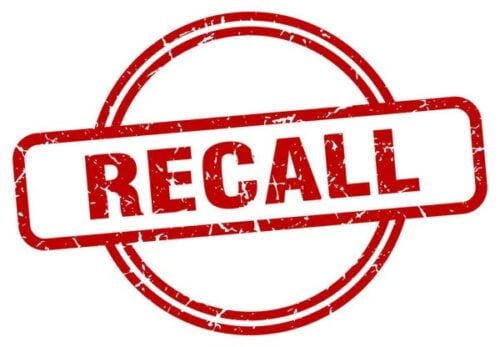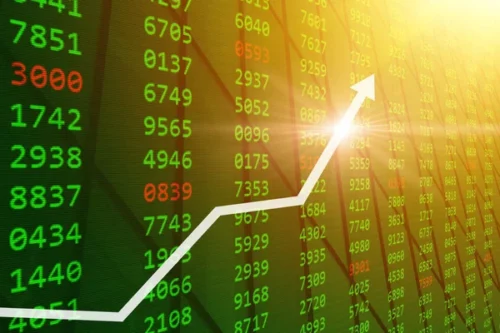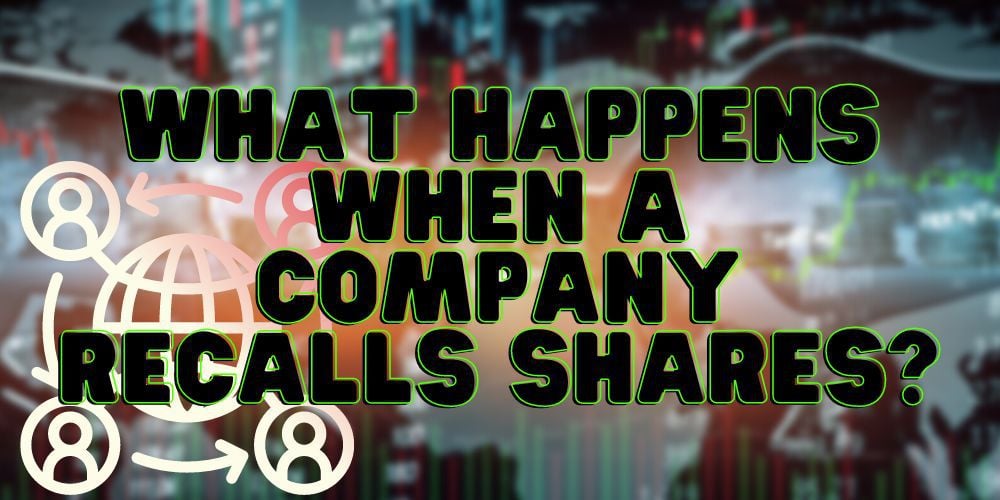Short sellers borrow shares assuming they can return them at any time as long as they maintain margins.
But this is not always the case. Lenders often have a right to ask them to return the stocks.
So what happens when a company recalls shares? We did a deep dive, and below is our answer.
A share recall happens when the lender of a security requests the borrower to return them.
This is subject to whether the agreement between the two parties supports it.
In most cases, it does.
When allowed, recalls are independent of the length of the contract.

Moreover, they can be initiated at any point except on the day the shares are loaned.
If it is an “on-term” agreement, the lender might be subject to financial penalties.
Otherwise, the borrower is not compensated in any way.
How Does It Happen?
The lender requests a share recall through their broker.
All short sellers who borrowed the stock get notified in turn.
On coming to know, they need to return the securities to the original lender.
This is true even if they have already sold them.
In the latter case, they usually cover the short by buying them at the current market price.
After this, the shares are returned to the lender.
Once the recall is completed, that quantum of stock is no longer available in the market.
This decreases the overall liquidity of the security.
Hence, a recall differs from what happens when the stocks are naturally returned after the margin trader has completed their transaction.
Usually, if a company recalls a large volume of its outstanding shares, there is an immediate upsurge in the stock prices.
However, as per studies, they are often followed by a fall in value after about two months.
Short sellers are negatively impacted during recalls, as explained earlier.

They are forced to cover their positions at a high price, causing losses.
Moreover, the trading activity also creates a sudden surge in volume, which influences other traders to buy the stock.
However, there are usually no long-term financial consequences for the company itself.
Why Would a Company Want to Do One?
There are usually two reasons why a company would want to recall its stock: either they need it back, or else it is an attempt to artificially raise prices.
Let’s cover both cases below.
Shares Are Needed Back
There might be a situation when the firm would want to recall stocks due to unforeseen circumstances.
One commonly seen reason is that institutional investors may want to buy them back.
Artificially Increase Prices
A share recall can be used to raise its price. It is rare but has been known to happen.
As explained earlier, when an investor requests his securities before the contract time, short sellers have to do it irrespective of whether they hold the stock or not.
This sudden requirement requires them to buy back the security at the current market rate.
Their action causes artificial volume in the share.
Meanwhile, if the company keeps buying its stocks simultaneously, there is even more trading.
The flurry of activity attracts other traders to view the stock positively and start placing positions in it.
This drives up the price.
However, note that recalls do not always impact short sellers negatively.
It all depends on the timing at which the decision is announced.
Usually, the idea of a short is that prices will reduce.
If this happens before the recall, there is no loss (even though the profit may not be as high as expected).
Lastly, the company’s financial profile may benefit in the short term, but studies have shown that artificial gains are also followed by price drops.
Who Can Perform a Recall?
The original lender of the shares is the only person who can request to get them back.
There are no restrictions on how long a single short sale can last.

Hence, margin traders assume they can buy back the shares anytime within the contract period.
They attempt to maximize profits by letting the stock fall to its lowest possible value.
A sudden recall can seriously reduce their profits.
Yes, there is always a share recall before a stock split.
The company that issued the stocks requests them back from all current holders.
It then divides and returns them.
The short sellers or other investors are not harmed in the process.
This is because they get just back their holdings.
The only difference is that the new price is divided, and volume is multiplied by the ratio of the split the company has decided.
For example, let’s say a firm XYZ’s shares are trading at $500.
They decide to split it in a 1:5 ratio.
The company will recall all its stock and then return it back to the investors.
The price of the security would now be $100, and each trader will hold five times the number of shares they earlier held.
Such splits are usually done if the security has become too highly priced.
Therefore, many investors might be shying away from buying it.
Usually, the board of directors of the business recommends such action.
Are Recalls Good?
Recalls can positively affect a company’s share price.
In some cases, they have climbed to almost five times their previous value.
This is because the action immediately pumps volume into the security.
It creates a ripple effect, growing demand and driving up value.
While it is good for the investor, it can be detrimental for short sellers.
In the past, some have lost billions during major recalls.
Final Thoughts
When shares are recalled in high volume, their prices show an initial uptick.
This might sustain for some time, benefiting the lender.
However, studies have shown that the impact on the short sellers eventually causes drops, usually after two months.
In most cases, they are negatively affected by this action.
They should factor in the increased risk in their trades to avoid panic when their short position is abruptly closed.
While increasing prices might be one reason, other causes can be behind a recall.
For example, a stock split is one scenario when companies call their shares back.
But in this case, there is no harm to any trader in the market since the firm returns all the stock after the split.
At times, unforeseen events could also cause such recalls.


 Tags:
Tags:










